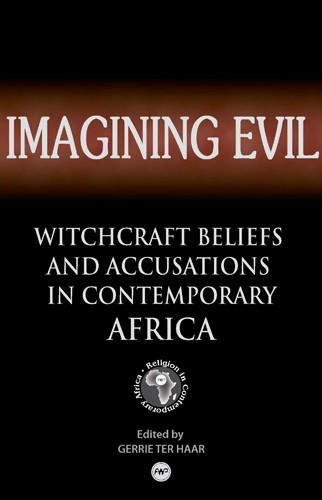Categories
Categories
Authors
Authors
- Home
- Religion/Theology
- IMAGINING EVIL: Witchcraft Beliefs and Accusations in Contemporary Africa, Edited by Gerrie ter Haar
IMAGINING EVIL: Witchcraft Beliefs and Accusations in Contemporary Africa, Edited by Gerrie ter Haar
IMAGINING EVIL: Witchcraft Beliefs and Accusations in Contemporary Africa, Edited by Gerrie ter Haar
Product Description
Here is a book on witchcraft written mostly by Africansscholars, but also human rights activists and religious practitioners. It discusses witchcraft beliefs and accusations in various parts of sub-Saharan Africa.
Witchcraftas the title of the book saysis a way of imagining evil. The belief in witchcraft is as strong as it is widespread in Africa, and many commentators have suggested a significant increase in witchcraft accusations in recent years. Reports relating to belief in witchcraft or to witchcraft accusations are a popular topic for discussion in African mass media. An alarming element of witchcraft accusations is the lynching or killing of alleged witches that often follows.
As a comment on witchcraft beliefs and accusations in contemporary Africa, Imagining Evil is distinguished from work in the same field in two major ways. First, the fact that most of the contributors are scholars living and working in Africa brings an acuteness of observation - often based on lived experience rather than academic observation alone. Second, the interest of authors in this volume is defined not only by scholarly insights, but alsoeven primarilyby the painful knowledge of the human suffering caused by witchcraft accusations. The personal tragedies that afflict the lives of those who fall victim to witchcraft accusations are hardly ever discussed in the academic literature on witchcraft. Witchcraft is a human rights issue.
By focussing on the fact that witchcraft accusations may result in violent death, the twelve contributors to the volume concentrate on witchcraft as an actual threat to society and to the psychology of individuals. Most of them acknowledge the spiritual nature of the issue, without losing sight of its material aspects. Both dimensions are significant, but it appears that no lasting solution to the problems posed by witchcraft beliefs and accusations will be found unless full account is taken of the spiritual dimension of the matter.
Witchcraft beliefs and accusations prevent development. They create a climate of fear. It is therefore important to think of ways, as these authors do, in which policymakers can control witchcraft accusations and prevent them from leading to lynching and suffering.
ABOUT THE AUTHOR
GERRIE TER HAAR is Professor of Religion, Human Rights and Social Change at the Institute of Social Studies, The Hague. She has written extensively on religion in Africa and the African diaspora in Europe. In recent years she has done research on witchcraft beliefs and accusations.
CATEGORY
Religion, Social Anthropology/AFRICA
 Loading... Please wait...
Loading... Please wait... 


